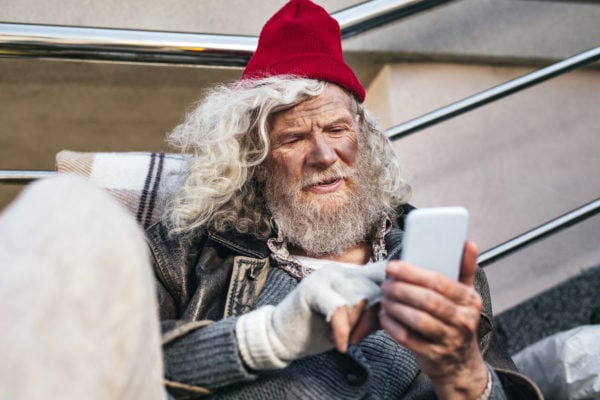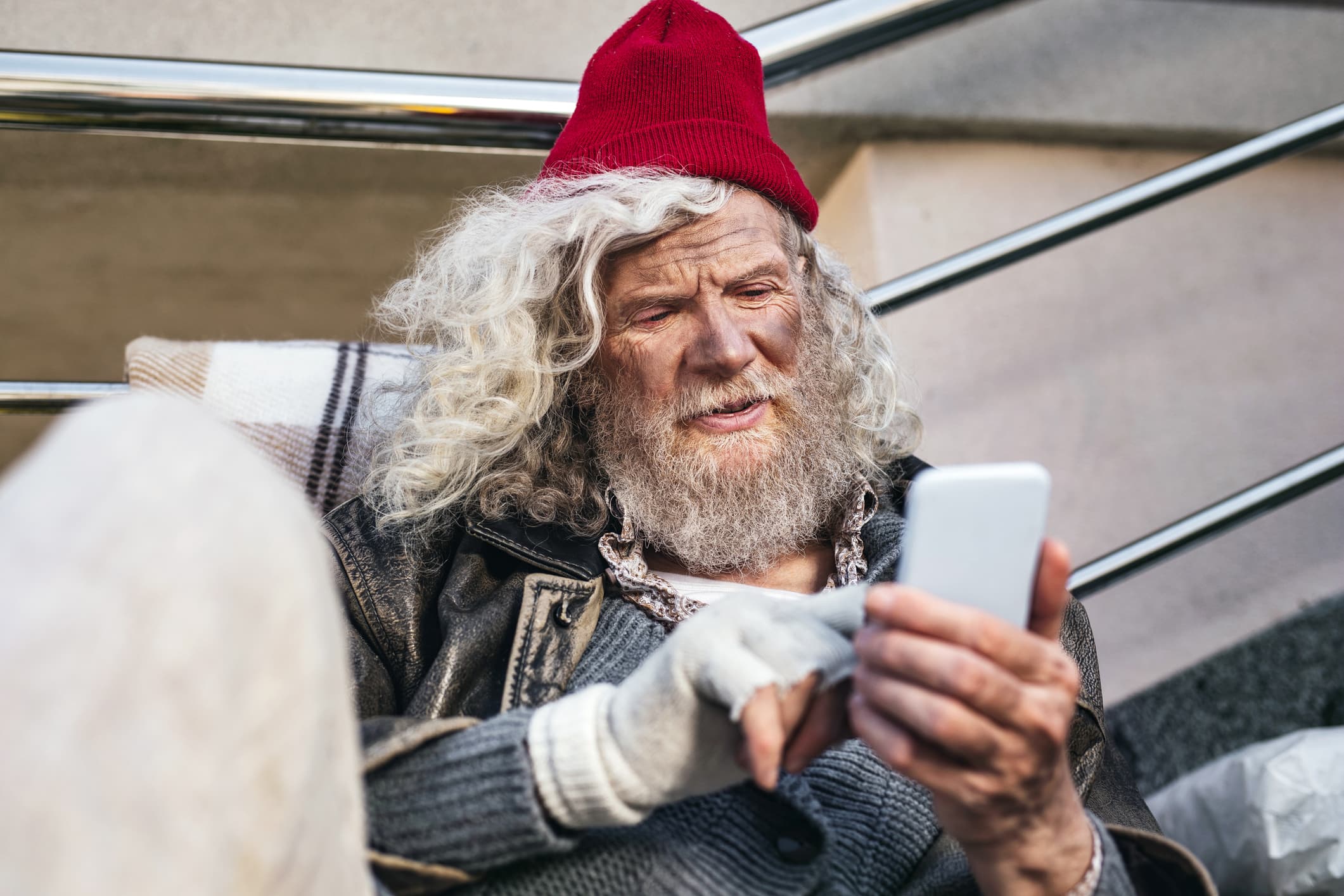Mobile technology is the cornerstone of modern communication and information access. Virtually everyone trusts it, grandmothers use computers and cell phones are everywhere. But in an odd paradox, technology access is often seen as a luxury or status item.
This mindset too often leads well-meaning folks to wonder suspiciously whether a poor or homeless person in possession of a cell phone is in fact really in need of supportive services. Such thinking also discounts the ability of mobile technology to offer innovative tools designed to support pathways out of poverty.

It only makes sense to leverage trusted mobile technology to offer homeless individuals access to helpful information through free easy to use mobile app’s… like WIN.
Mobile applications are uniquely suited to meet a direct service. In addition, they also transform the outreach dynamic by empowering vulnerable students and families to search for and connect with service providers they choose when they are ready.
In other words, while many of those who are living on the streets need the guidance and support of a trained outreach worker, many others, especially the hidden homeless and those who are housed but severly struggling, can be empowered by technology to exercise agency and locate the help they need without waiting to be "found" by an outreach worker.
If you are homeless or living in your car, you can use free WIFI at your local library to download WIN to search for housing, respond to job searches or call a hotline. Couch-surfing college students may use it to locate free food, tutoring or school supplies. WIN offers free access to regional services, directions, helpful information and more.
Access to information and services are the first step out of poverty. The next time you see a destitute person with a cell phone, remind yourself that cell phones, notepads and mobile apps meet a direct service need of the homeless- access to information. Apps like WIN are a 21st century “Hand Up”.
Mobile technology is the cornerstone of modern communication and information access. Virtually everyone trusts it, grandmothers use computers and cell phones are everywhere. But in an odd paradox, technology access is often seen as a luxury or status item.
This mindset too often leads well-meaning folks to wonder suspiciously whether a poor or homeless person in possession of a cell phone is in fact really in need of supportive services. Such thinking also discounts the ability of mobile technology to offer innovative tools designed to support pathways out of poverty.

A smart phone in hand can offer the opportunity for human connectivity as well as a sense of security. Recognizing the importance of communication and knowledge access, the federal lifeline program has been providing homeless and low-income individuals access to smart phones for over a decade. Millennials consider cell phones a necessity- one study reported that homeless teens consider smart phones as important as food. Today, the vast majority of the US’s homeless youth, families and adults under age 40 have smart phones.
It only makes sense to leverage trusted mobile technology to offer homeless individuals access to helpful information through free easy to use mobile app’s… like WIN.
Mobile applications are uniquely suited to meet a direct service. In addition, they also transform the outreach dynamic by empowering vulnerable students and families to search for and connect with service providers they choose when they are ready.
In other words, while many of those who are living on the streets need the guidance and support of a trained outreach worker, many others, especially the hidden homeless and those who are housed but severly struggling, can be empowered by technology to exercise agency and locate the help they need without waiting to be "found" by an outreach worker.
If you are homeless or living in your car, you can use free WIFI at your local library to download WIN to search for housing, respond to job searches or call a hotline. Couch-surfing college students may use it to locate free food, tutoring or school supplies. WIN offers free access to regional services, directions, helpful information and more.
Access to information and services are the first step out of poverty. The next time you see a destitute person with a cell phone, remind yourself that cell phones, notepads and mobile apps meet a direct service need of the homeless- access to information. Apps like WIN are a 21st century “Hand Up”.
